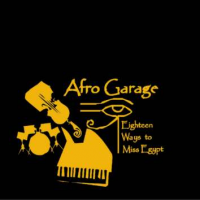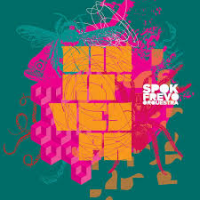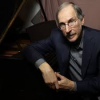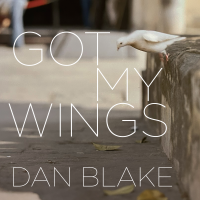Home » Jazz Articles » Catching Up With » Duane Eubanks: Artistry of a Boundless Nature
Duane Eubanks: Artistry of a Boundless Nature
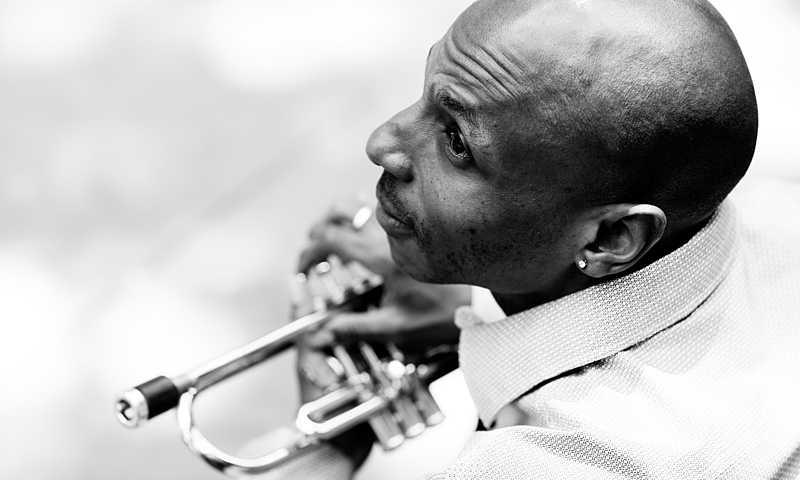
All About Jazz: Duane, thanks for taking time to speak with us today.
Duane Eubanks: Thanks for the invitation.
AAJ: I know a little bit about you and your talented musical family—that you're a Philadelphia guy, and that you studied with the great Johnny Coles. But, I'd like to ask you first about your new album, Things of That Particular Nature. It's been awhile since your last album as a leader, how did this album come about?
DE: Well, it's been close to 12 years since I've released anything as a leader. But, during that time span, I've been very busy as a sideman musician—playing with Dave Holland's Big Band, with the late Mulgrew Miller, Elvin Jones group and many others. The time had come. Sometimes things take time to nurture and settle in your mind. Going through life, you know. I said to my wife, Aleta: "I really need to record again." She helped me focus and to be able to make this thing happen.
AAJ: So the process to record this album was a lengthy one?
DE: I was always writing during that time. Working on ideas and things. I had more than enough material to record—enough for another album after this one. It was just time. It was something that I wanted and needed to do. Aleta saw it through.
AAJ: There are a lot of "family" references in the compositions on this album? Your liner notes detail that. Even the album title, Things of That Particular Nature has a family connotation, right?
DE: Exactly. Family is the closest tie that we have to the term "love." We can't take that lightly. And, that love is expressed through the music. That emotion draws so much from the individual. My Dad has uses that phrase and has for 50 or 60 years. I remember hearing him use it as a kid. It was mesmerizing to me, because he would say it with such clarity and strength. I'd think: "Man, my Dad is such a smart man. He's so articulate." As I got older, I started thinking "Wow! These are some of the qualities I'd like to express through my music. I want to sound educated -strong. I want people to understand exactly what I'm trying to say musically."
AAJ: And the "family"-inspired or dedicated compositions on the date?
DE: "Purple, Blue and Red" are my wife and children's—Leanna and Caitlin's favorite colors. "AS Is" was written for my brother, Robin's daughter, Allegra Star. "Rosey" for my twin brother's daughter, Shayna Rose. "P" for my son, Preston. "Dance with Aleta" came about when we were dancing at my friend, Orrin Evans' birthday party. "Holding Hands" is Mulgrew Miller's original for the love he and his wife shared.
AAJ: Who are the musicians on Things of That Particular Nature with you?
DE: On tenor saxophone, Abraham Burton. On piano, the great Marc Cary. On bass, Dezron Douglas. On drums: Eric McPherson and a special guest artist on two tracks —the incredible Steve Nelson on vibes.
AAJ: Is that your regular group?
DE: Yes, that's my regular band.
AAJ: The creativity and energy seem to be at a high point throughout out the album.
DE: Yes, you know, there's one thing that happens here. We are really connected and each of the players in my group brings with them all of the great experiences they have gained from their own playing with other great musicians. I feel that that collective energy helped make Things of That Particular Nature a very successful one. When I think of "the team," I am first blown away and intrigued by the level of respect these guys have for the art form and the love they have for each other. They are all directly linked to Jazz Masters that helped create the language of the jazz idiom. Off the top of my head, between us all, we have been musically involved with artists such as Abbey Lincoln, Roy Haynes, Art Taylor, Jackie McLean, Betty Carter, Louis Hayes, Mulgrew Miller, Andrew Hill, Dave Holland and Elvin Jones. As a result, there is a high level of respect and responsibility that has been bestowed upon us. What we do is serious business. So, we learned to respect the music and the musicians on every level. I have noticed that individuals that learn directly from the bandstand from Masters carry themselves with a sense of purpose. That mindset transcends musically and speaks volumes on recordings and in performances. There are many moments that represent this on the recording: Marc Cary shines throughout but on Mulgrew's "Holding Hands," he plays with tradition in mind. And, you can hear the respect he has even as he reaches for more Modern Jazz concepts on "Purple, Blue, and Red," and on his feature, "Rosey." Marc's strength is his ability to take music on a direct path through his comping. Listen to what he instinctively played on the top of "Anywhere's Paradise" where he makes an acoustic piano sound like a guitar from the Islands. Dezron Douglas, we call him "THE HAMMER," is steeped in the tradition of bass as he consistently has a stern and steady pulse throughout. He is also blessed with an incredible sound that is featured in an open interpretation on "Rosey." Eric McPherson and Dezron get along so well. "On Slew Footed," which features the intelligence and class-filled brush solo work of Eric, it showcases his talent as he takes a thoughtful approach to an important but often overlooked drum concept -the brush solo. Abraham Burton is my frontline mate for many reasons. He plays with so much strength and passion. "On Dance with Aleta" you can hear him calling the Blues and hear his brute strength on "Purple, Blue Red" and again on "Slew Footed." And vibraphonist, Steve Nelson—our "Resident Genius." Steve is on such a high level of musicianship. All you have to hear is the intro to "Holding Hands to hear why he's our "Resident Genius." We played with Mulgrew Miller together. Mulgrew was supposed to make the recording date.
AAJ: With one exception—that being a Mulgrew Miller original—all of the selections are your original compositions. Stylistically, how do you approach composing?
DE: I have a hard time just sitting down at the piano and saying "I have to write—right now" and creating something. However, throughout any given day, ideas come to me and I'll remember them. I could be on the subway and an idea will come to me. For me, it's of a more natural, spontaneous way of composing something. That's how things come. I usually come up with the chord changes first before the melody, not the other way around.
AAJ And what about your playing style?
DE: Well, my playing style emanates directly from the time I spent studying with Johnny Coles. He was very instrumental in my development. He always wanted me to understand the importance of having your own sound, not to try to copy everybody else. We studied Clifford Brown and Lee Morgan—a lot of Lee Morgan. Johnny got me thinking more melodically. More lyrically. Everything relates to melody.
AAJ: I think there's a lot of Kenny Dorham in your playing, too.
DE: Sure. I had a natural connection with Kenny's playing—his phrasing. I was playing a jazz festival once in Philly and Arthur Harper called me up one day and said: "Man, you sound a lot like Kenny D." Later on I transcribed a lot of Kenny Dorham. I can't put my finger on it, but, I think there is a natural connection with Kenny's playing. He's one of my favorites.
AAJ: You said that Mulgrew Miller, God rest his soul, was another major influence on you. You worked with him, right?
DE: Yes, for over ten years. His stance on the music was invaluable. He left a lot for not only piano players, but, for all of us. I don't have enough words to even discuss Mulgrew. He taught me so much not only as a musician, but as an individual. He had a lot of things in store for me. And, he was nurturing me to take those steps that he had in mind for me. Unfortunately, he's not around to "push" me, but, I "talk" to him all the time and want to make sure I continue with the development that he had in mind for me musically and otherwise.
AAJ: In addition to Johnny Coles, who was on the classic Miles Davis-Gil Evans albums, you also play with one of Miles' other former sideman, bassist Dave Holland in his Grammy Award-winning Big Band.
DE: I've played in Dave Holland's Big Band for a number of years. And, I can't tell you how much playing in that band has helped me grow as a musician. Before playing in Dave's band, I was used to everything being in 4/4 and 3/4. But, Dave's stuff was in all sorts of different time signatures—5/4 and 7s, 9s, and so forth. I had to grow to grasp the rhythms. It was basically reading. It's helped me tremendously. It was really the hardest music that I've had to tackle -between Dave's stuff and my brother, Robin's.
AAJ: Didn't you also play with the great Clark Terry one time?
DE: Yes. It was at the Cape May Jazz Festival. Clark was playing at one venue and I was playing nearby with some Philadelphia. He came over and played "Cherokee" with us. And, after our set, he sat me down and kindly gave me like an hour lesson on his "Doodle Tonguing" and other things.
AAJ: Do you still play with your two brothers, Kevin and Robin?
DE: Well, not as a collective together. I performed on a couple of Robin's CDs and on his latest CD, Klassic Rock, Vol. I and on Kevin's The Messenger. But, we haven't been able to get it together as a collective. We've all been busy and at different stages of our development, but, it's something that's eventually going to happen. A lot of people are asking about that. We will discuss things and will eventually things will settle down and we'll get a great concept together. I know my brothers well and I know they don't want it to be some kind of a "brothers" thing. They and I would certainly want a strong musical concept for it.
AAJ: You mentioned that you have enough material for another CD. So, what's coming down the pike?
DE: Well, we're growing as a group. We just had a CD release party for Things of That Particular Nature. I had a nice discussion with the group and we're all looking forward to growing together as a group. We're all eager and anxious to do more. I could do another quintet recording, but, I'm sort of also leaning toward doing a trio date. That'll give me a lot more space to create. Sometimes, my personality allows me to hide behind my mates. I like to push them up a little further. Things are going so well, I might do that quintet thing first, then a trio thing. That might be the route I want to go.
AAJ: You have a beautiful trumpet sound. What's your equipment?
DE: Thank you. Right now, I'm playing a Yamaha Bobby Shew Model, a 6310Z. I really am now getting inside of it. It's an easy to overblow. So you have to finesse and be really polite with it in order for things to come out the way you want.
AAJ: What's that thing on your trumpet mouthpiece?
DE: It's a mouthpiece sleeve that Josh Landress in New York made for me. He's the top repair guy everyone goes to in New York. It takes some of the vibrations from your lip and puts them directly into the horn. I misplaced the sleeve one night and played a gig without out. The horn was literally jumping off of my lip. So, now I'd never play without it. It makes me more aware of how much air I'm using. We don't want to overblow. It helps shape me to be more aware about how much and how I use my air—using a consistent flow of air.
AAJ: And your mouthpiece?
DE: It's a Woody Shaw prototype that Greg Black made for me. I had to get used to it because it's a smaller mouthpiece. I found the warmth in it.
AAJ: Do you play flugelhorn?
DE: Yes, I played flugelhorn on two cuts on the record. People say my trumpet sound sounds a little like a flugelhorn. There's something about the flugelhorn that's a little weird with me. You have to practice it. You can play it like a trumpet like Freddie Hubbard, but, I wouldn't.
AAJ Duane, this has been wonderful. Best of Luck with Things of That Particular Nature and all your future projects.
DE: My pleasure, Nick. Thank you.
Photo credit: Gulnara Khamatova
Tags
Duane Eubanks Quintet
Catching Up With
Duane Eubanks
Nicholas F. Mondello
United States
Pennsylvania
Philadelphia
Mulgrew Miller
Robin Eubanks
Kevin Eubanks
Dave Holland
Johnny Coles
Elvin Jones
Orrin Evans
Abraham Burton
Marc Cary
Dezron Douglas
Eric McPherson
Steve Nelson
Roy Haynes
Art Taylor
Jackie McLean
Betty Carter
Louis Hayes
Andrew Hill
Clifford Brown
lee morgan
Kenny Dorham
Woody Shaw
Freddie Hubbard
PREVIOUS / NEXT
Duane Eubanks Concerts
Support All About Jazz
 All About Jazz has been a pillar of jazz since 1995, championing it as an art form and, more importantly, supporting the musicians who make it. Our enduring commitment has made "AAJ" one of the most culturally important websites of its kind, read by hundreds of thousands of fans, musicians and industry figures every month.
All About Jazz has been a pillar of jazz since 1995, championing it as an art form and, more importantly, supporting the musicians who make it. Our enduring commitment has made "AAJ" one of the most culturally important websites of its kind, read by hundreds of thousands of fans, musicians and industry figures every month.



